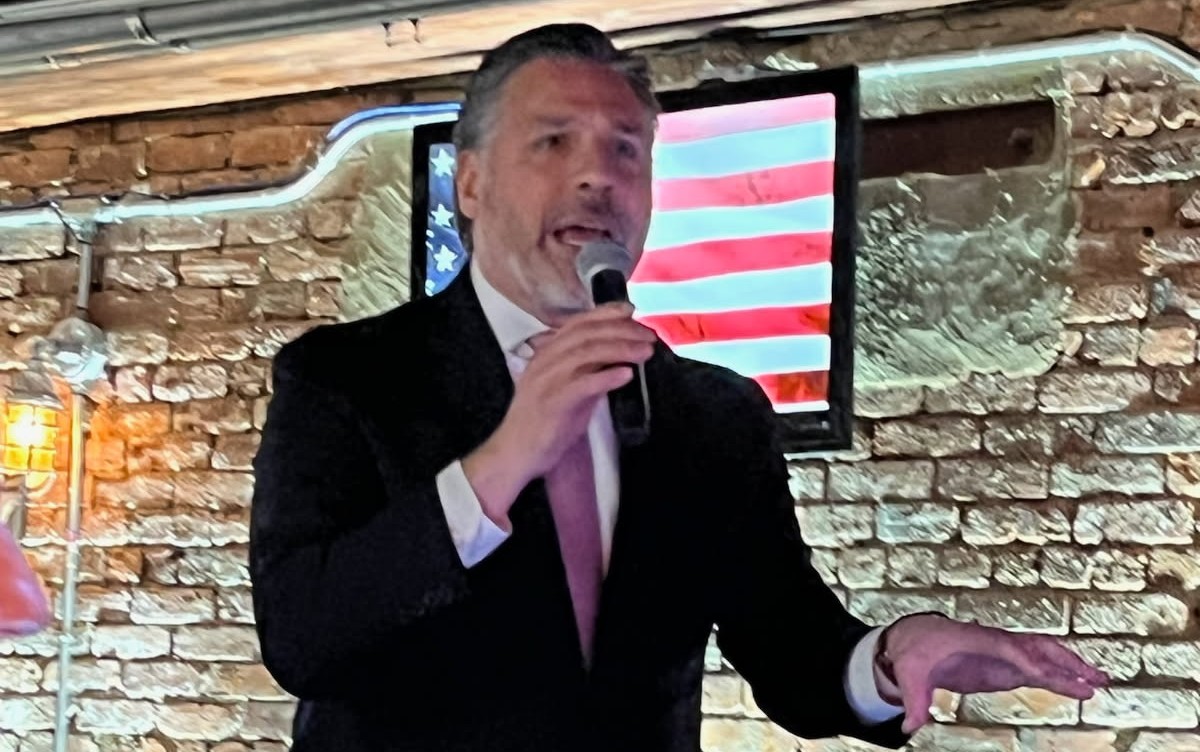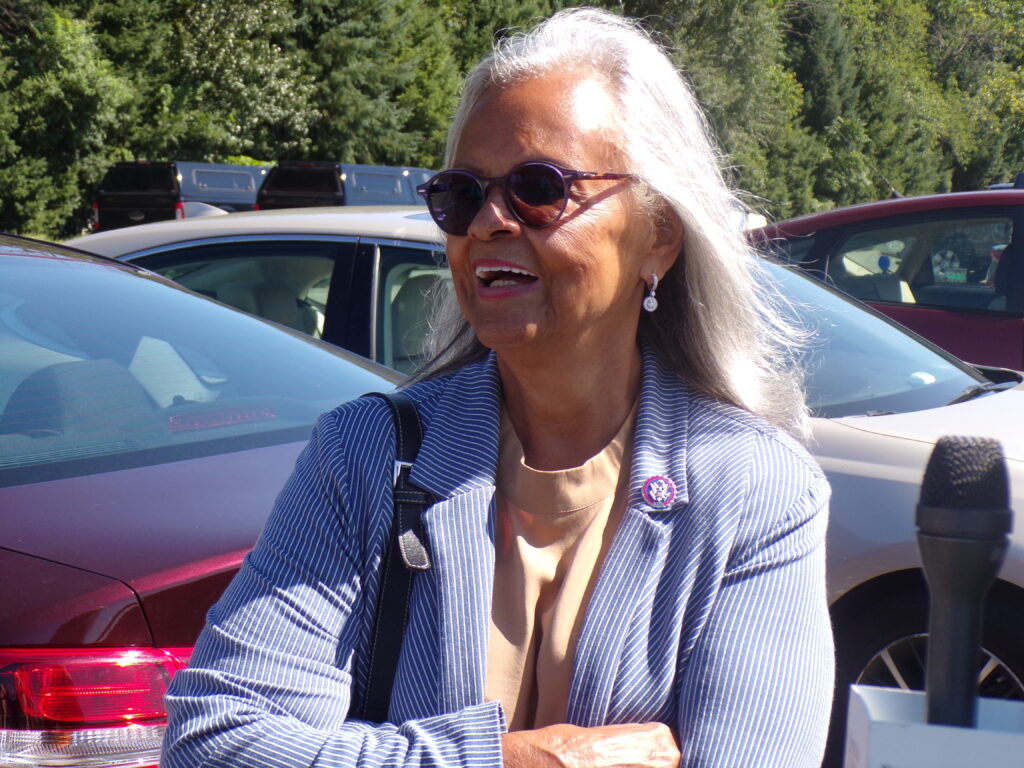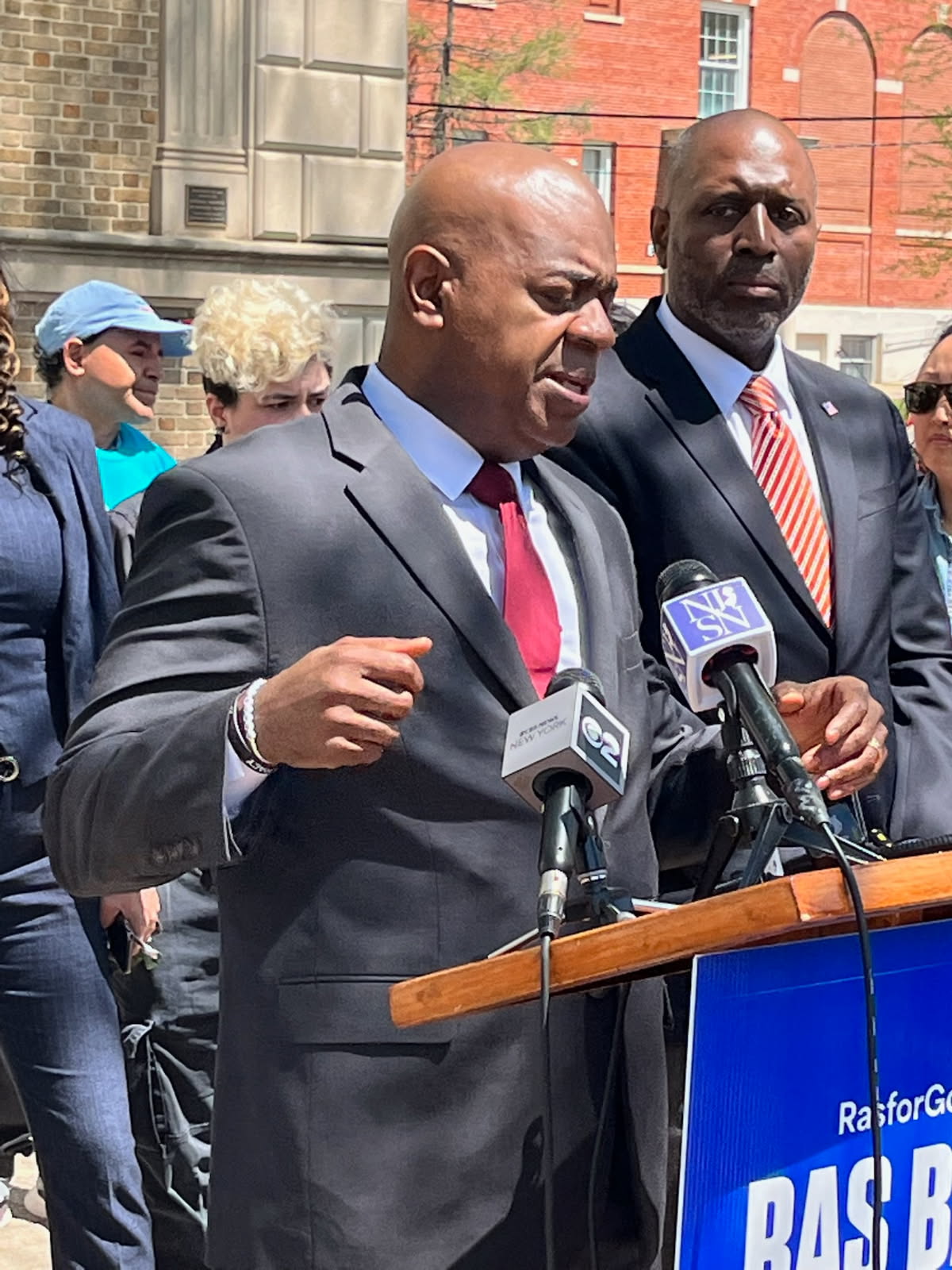Vying to beat billionaire welfare, labor leaders and organizers representing hundreds of thousands of higher education and allied workers this afternoon rallied in the nation’s capital to expose the decimating impacts of President Donald Trump’s and Elon Musk’s cuts to research and higher education funding.
The organizers spelled out how chainsaw-wielding billionaire Musk under Trump’s auspices wants to eliminate critical aid to university labs, halting medical breakthroughs, and handing control of research to private corporations. “These cuts aren’t about ‘efficiency’—they’re about gutting public science so billionaires can profit off life-saving research that taxpayers already paid for,” they argued.
“HANDS OFF our healthcare, research, jobs, and education!” yelled Todd Wolfson national president of the American Association of University Professors (AAUP) and president of Rutgers AAUP-AFT, who wanted elected federal officials to get the message and get to work if they care about people.
The chaotic and cruel cuts mean “Cancer patients will be left without hope. Alzheimer’s will steal more loved ones, Diabetes going untreated and heart disease taking lives that could have been saved,” said Wolfson. “It means students training to save lives will have their futures stripped away before they even begin…. all because billionaires decide their profits mean more than lives.
“Let me be clear,” he said. “Trump’s reckless cuts will kill. This isn’t about streamlining government or reducing waste. This is about consolidating power at the expense of working people. …These are the actions of cruel weak people.”
Then he addressed elected officials in both red states and blue states.
“If you care about working people and you care about health and education – prove it,” said the labor leader. “Stand up for our healthcare, jobs, and higher education. Remember, we are in every city, on every campus, in every hospital, in every lab, and we are not backing down.
“If you are angry and ready to fight let, them hear it,” Wolfson added.
The crowd roared.
Amplifying a Rutgers-led letter fired off this week, hundreds of higher ed workers and allies joined online to energize and collectivize power to loudly send the message to legislators and elected officials.
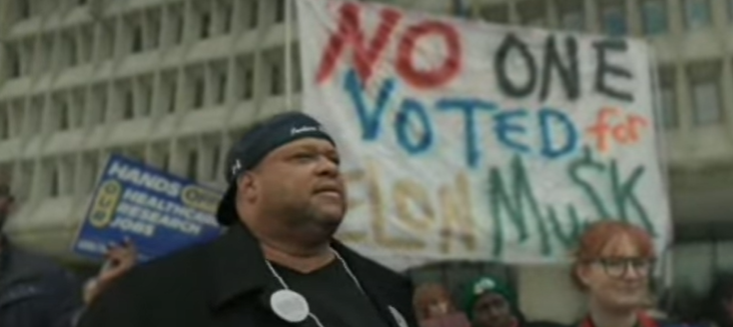
Speakers at the rally included Randi Weingarten, president of the American Federation of Teachers.
Other members of the coalition include AAUP, AFSCME, CWA, NEA, OPEIU, SEIU, UAW, UE, Higher Education Labor United (HELU) and the Debt Collective.
Liz Shuler, national president of the AFL-CIO, promised that labor intends to “fight like hell.”
“I’m here on behalf of 15 million working people and we’re standing up for all working people, on behalf of our heroes, the higher ed workers,” Shuler said. “You’re not just taking them, on you’re taking on the entire labor movement.
“Elon,” she added, “if you want to threaten our labs, our equipment, and say curing cancer is a bad investment for the government to be making, then why don’t you give back the $18 billion you’ve taken in federal loans over the last ten years.”
“No more billionaire welfare,” someone screamed.
“That’s right,” said Shuler. “We are going to fight back.”
Some context, from The Economic Times:
“The Department of Government Efficiency (DOGE), an unofficial cost-cutting group led by Elon Musk, has implemented significant reductions in research funding for the private medical sector. Specifically, the National Institutes of Health (NIH) has capped indirect cost rates at 15%, down from an average of 30%. Indirect costs, which include utilities, administrative salaries, and maintenance, are essential for research institutions to operate. This cut means private research institutions, universities, and hospitals must now cover more of these costs themselves, potentially leading to budget deficits and reduced research capabilities.”
Lisa Lacasse, president of the American Cancer Society Cancer Action Network, said in a statement this week the cuts could “dismantle the critical government infrastructure that has played a pivotal role in cancer survivorship for 18 million individuals who are alive today in the U.S. resulting in more suffering from cancer nationwide.”
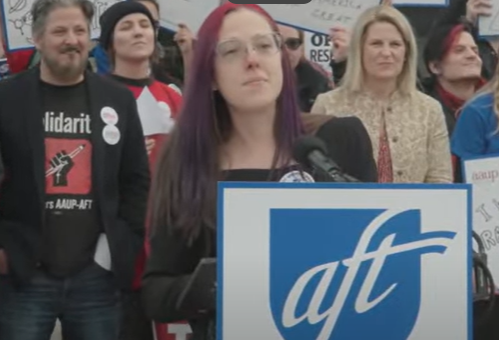
(Visited 136 times, 147 visits today)
Rutgers University students and faculty members recently took to the streets of Washington D.C. to protest President Trump’s proposed budget cuts and attacks on the Department of Gender and Ethnic Studies (DOGE). The group, led by Rutgers United Students Against Cuts (RUSAC), joined forces with labor unions and advocacy groups to voice their opposition to the administration’s policies.
The proposed budget cuts would slash funding for crucial social programs, education, and research initiatives, disproportionately affecting marginalized communities and vulnerable populations. In particular, the DOGE program at Rutgers University, which focuses on issues of race, gender, and social justice, is facing potential elimination under the new budget proposal.
Protesters marched through the streets of D.C., chanting slogans and holding signs that read “Save Our Schools” and “Protect DOGE.” They called on lawmakers to reject the budget cuts and defend the vital programs that support diversity, inclusion, and equality in education.
Rutgers University has long been a champion of social justice and activism, and the students and faculty members who participated in the protest are committed to fighting for a more equitable and just society. They believe that education is a fundamental right that should be accessible to all, regardless of race, gender, or socioeconomic status.
The protest in D.C. was just one of many actions taken by Rutgers students and faculty members to resist the Trump administration’s harmful policies. They have organized rallies, teach-ins, and letter-writing campaigns to raise awareness about the impact of the budget cuts and DOGE attacks.
As the fight against the budget cuts and attacks on DOGE continues, Rutgers University remains at the forefront of the resistance movement. Students and faculty members are determined to defend their right to education and to stand up for social justice in the face of adversity.

